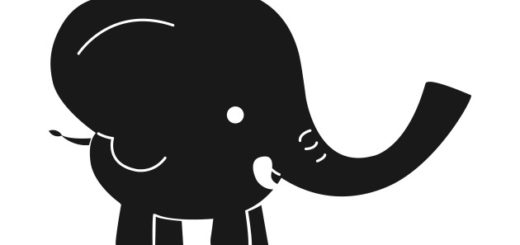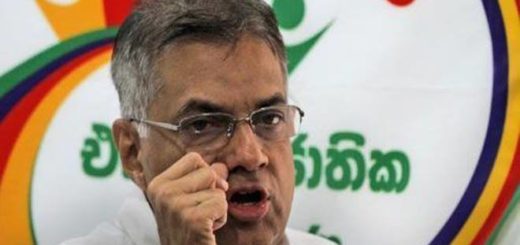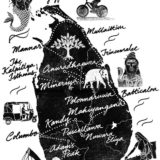Forty empty years of Ranil’s politics
In a drama never seen in the Westminster tradition, Prime Minister Ranil Wickremesinghe had brazenly escorted his closest partner in cut-throat politics, Ravi Karunanayake, to the front benches of the House on the day the latter was forced to announce his resignation because of his involvement in the biggest financial scandal in the 70-year history of the Sri Lankan Parliament. Normally, the ruling elite would for the sake of self-preservation take prudent and cautious steps to dissociate itself from an accused party facing multi-million dollar scandals. This is an obvious necessity because any association with the accused party casts doubts on the credibility, integrity, viability and, most of all, the morality of the entire government. The government, therefore, keeps a healthy distance to make at least a pretense of having nothing to do with the accused party who is left to twist in the wind from the nearest hanging tree by the self-proclaimed moral majority.
A prime minister may, out of personal loyalty extend his backing privately but never in public. The moral backlash would be suicidal to any leader in the Westminster model if he decides to embrace publicly those who are tainted with corruption. But kicking all moral considerations and public opinion aside the Prime Minister, in a bizarre turn of events, escorted Ravi Karunanayake to his ministerial seat. Why did he go out of his way to assist his Assistant Leader? What message does this act convey to the public? Doesn’t this leave the unambiguous impression that the Prime Minister is hand in glove with the accused? Or is the PM openly saying that there is no need for Karunanayake to worry now as he will be brought back to the front bench after the heat cools down later? Either way, it indicates that Wickremesinghe is, directly or indirectly, linked to the dealings that led to the resignation of Karunanayake.
The Prime Minister is a veteran parliamentarian, and a lawyer to boot, who should know, after all his years of experience in the Westminster system, that escorting corruption to one of the highest seats in Parliament reflects the lowest perversion of a kakocracy and not the highest values of a democracy. His act of enthroning corruption distorts and devalues the moral power of the fundamental principles of parliamentary practices and procedures needed for good governance. Most of all, it is a reprehensible act that questions his integrity. Isn’t his failure to maintain the basic principles the primary cause for the dysfunctional state of Yahapalanaya today? On which side of political morality can he be when he escorts corruption and enthrones it in a ministerial seat in Parliament, eh?
As they say, fish begins to rot from the head and there is no doubt in the public mind that the major issues that are dragging the Yahapalanaya regime into incremental loss of public confidence have originated from the desk of Wickremesinghe. From day one of the Yahapalanaya regime the President put the responsibilities of initiating, implementing, policing (FCID) and the monitoring of major state affairs on Wickremesinghe’s shoulders. It was a huge responsibility going beyond the role of holding a seat in the Prime Minister’s office. His role was to be the moral arbiter steering the state into a new moral order. In short, the responsibilities were showered on him with the expectation of processing policies and programs through clean channels to achieve the highest moral standards promised in the Yahapalanaya manifesto. .
The promised venna-suck (pronunciation : when-a-suck, meaning change/difference) in the Yahapalanaya regime was to achieve a squeaky clean administration. In fact, Yahapalanaya was born out of the need for a higher morality and its fundamental task was to act within unimpeachable parameters of political conduct. Clearly, the mandate given to Ranil (Mr. Clean”) Wickremesinghe on January 8, 2015, was to give moral leadership. The most appealing promise given to the electorate was to l@|









